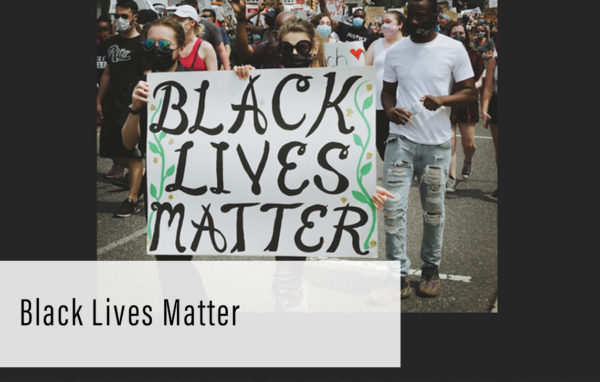How To Deal With Negative Comments
Today, I want to talk about how to deal with and metabolize negative comments you get on social media or in real life.
Let me give you some context.
It’s been over a decade since I started what I call a mindful, sustainable business.
This means the business is structured in a way that keeps me in the present moment and mindful about what I am sharing with the world.
The sustainable part means that I am able to maintain the business through the various seasons we all inevitably go through. (This includes a worldwide pandemic where I am also now a full time mom and have less than half the amount of time/energy to devote to the business.)
My business has continued to run successfully through ups and downs as I modify the resources I put towards it.
I know that many of you in this community are looking at how you can run a mindful, sustainable business, and I am going to be talking more about it in the coming weeks.
With all that said, running a business usually means you will be sharing your ideas with people other than your best friends.
While there is no right or wrong on how much or little you want to put yourself out there, nor does the amount you put yourself out there equal the amount of success you will achieve, there will come a time when someone, somewhere, won’t like what you have to say.
The reason I am talking about this topic is because this doesn’t JUST apply to running a business, am I right?
No one gets out of this life without someone having an opinion on your choices.
And no one goes through life without ever feeling hurt by what someone said or did in response to those choices.
Therefore, it’s important that you have some tools to help you get unstuck from bad feelings when someone says something mean to you, doesn’t approve of you or doesn’t realize that their actions were hurtful.
You don’t have to stay hurt. And you certainly don’t have to then go and accidentally hurt someone else because you didn’t properly deal with your own feelings first.
Step 1: Zip It Up
Before you go and read the comments from your recent post or before you engage in a conversation with someone you know triggers you, it’s helpful to ZIP UP your energy.
Let me explain.
The other week, I was having a zoom call with two of my best friends from college. One of them is a nurse in Chicago. As I have shared, I have been dealing with a lot of anxiety around this pandemic. I wanted her to be able to share freely about what she was experiencing on the front lines. I wanted to be a good friend and be there for her for whatever she was going through. But I was also nervous that her sharing would trigger some anxiety in me! (Not because that was her intention!)
So before the call, I zipped up my energy. I quickly visualize myself zipping up an imaginary suit that protects my energy, my heart and my mind. It allows me to be fully open and available and remain soft and compassionate without taking on something that is not mine. (Anxiety, anger, frustration, etc.)
Before you read the comments on your post or engage in a conversation with someone that might cause you angst, you can zip up your energy. And you can do it anytime of the day. You don’t need a whole ritual around it or a 15-minute meditation. Just take a moment, visualize your protective love suit, and zip it up, baby.
Step 2: Hash It Out
Ok, let’s say you forgot to zip up your energy or you get blasted by some negativity out of the blue.
It’s ok! It happens. We can still work with this.
Have you ever noticed that after someone does something that is offensive to you, you end up having a conversation with that person loooong after the actual conversation ended? It’s like you are still talking to them as you do the dishes, make your bed or get dressed.
And this internal argument with them can feel disruptive to your life.
But, I think having this argument with them inside your head can actually be valuable.
There have been times I spent hours defending my position with someone I don’t even know. I have had long conversations in my head, holding my position with people who offended me.
While you don’t want to do this for days on end, often these internal conversations help you establish your position and feel more grounded in the choices you made.
I think particularly as women, we are so easily thrown off track.
We are so easy to think someone else’s opinion is more valuable than our own.
We think someone else must know better or know more than us.
It breaks my heart, because I experience it too.
We need to get more solid in our choices.
We need to clarify, mostly to ourselves WHY we chose what we chose. We need to feel the roots of our choices deep in the earth so that we have the confidence to go forth with those choices.
That’s why hashing it out with yourself is helpful in helping you stand on your own two feet.
However, the rule here is that you can’t do it for more than a day or two. Then, you must move on to step 3.
Step 3: Feel It and Nurture It
At some point, you have to be done discussing it with yourself and get to the healing. So here we go.
Find a quiet and relaxing place. It can be while you are out for a walk or taking a nice bath.
Begin to see the person who hurt you going further away. Imagine them almost being blurred out of your vision. Because ultimately, this is not about them, it’s about you and your feelings. So for this step, they are no longer a big part of the story.
What they said was about them and not about you. But you are the one feeling something, so we need to feel it to heal it.
Close your eyes and ask yourself how you are feeling? Begin to name the emotions.
Then, notice how those feelings feel in your body.
When I dealt with someone who I felt had attacked me and my character and I went into this space, all I could imagine were daggers going into my stomach. And it hurt. (It wasn’t a pain that I couldn’t handle, but it really felt like I had been attacked.)
So, I sat with the pain. It was my pain. I was able to feel it and name it. And sit with it.
Then, you need to nurture it. Put your hand on your heart. Say what someone in your position needs to hear. “It’s ok honey. You are ok. I am here for you. You can handle this. You are stronger than you think. It’s ok to feel what you are feeling.”
Trust that your intuition will know how to nurture yourself in these moments.
Step 4: Forgive
Ok, this is a SUPER complex topic. At some point, I will write a book on it, because forgiveness is layered and hard and messy and if I am being honest, I really hate how a lot of spiritual teachers talk about it like it’s so easy.
That’s BS.
But rather than dive deep into the complexity of forgiveness, I want to give you a simple tip when you can’t and don’t really want to forgive.
Here is a simple tip around forgiveness when you can’t and don’t really want to forgive.
Just say, “This person is doing the best they can with what they have and where they are.”
Right now, try saying that a few times in a really soft, easy tone.
Because it’s true. We are all just doing the best we can with what we have and where we are. We are all on a different path. We all have hard things we are going through. We all have pasts that were rocky. We all have hurts and wounds that make us do a lot of crappy things. We are all just doing the best we can with what we have and where we are.
This is ever so true of the person who hurt you.
The end. If that is all you can muster as it pertains to that person, please know, it is good enough. This alone will start to loosen the grip.
Step 5: Take Action or Not?
Now that you have gone through the above steps, you get to decide if you want to take action towards the person who hurt you.
For me, on social media, I decided my policy right now is to delete and block. I just feel like I have too many things I am dealing with each day. My door is not open to attacks or negativity on social media.
You can decide what feels right for you.
If the person who hurt you is a friend or family member, you can either let it go, and I mean TRULY let it go and accept it or you can choose to have a discussion with that person.
How to have a conversation with this person requires a whole other post that I promise to write, but for the time being, if you choose to talk to this person, I want you to KNOW YOUR INTENTION.
If your intention is to prove that you’re right, then you’re wasting your time. This inevitably won’t go well.
However, if your intention is to close the gap with that person and move closer to that person, this is a good start. A lot of this depends on the other person and how open they are to these conversations. You can’t force it, otherwise you may be disappointed.
But if you can hold the intention of closing the gap, you may find a conversation may help.
That said, you don’t have to have one in order to heal.
Dealing with and metabolizing negative comments is a practice.
It requires that you start paying attention to what comes up for you when someone does something you don’t like.
If you keep these steps in mind, in time, it will become second nature. So please, be kind and gentle with yourself.
Remember, the goal here is to feel good, empowered and at ease in your body and in your life.
In the comments below, I would love to hear how this lands. Are these steps you can take and apply today? What stands out as the most challenging step? Which is the easiest for where you are now. I look forward to reading your thoughts.





See the Comments
22 Responses to How To Deal With Negative Comments